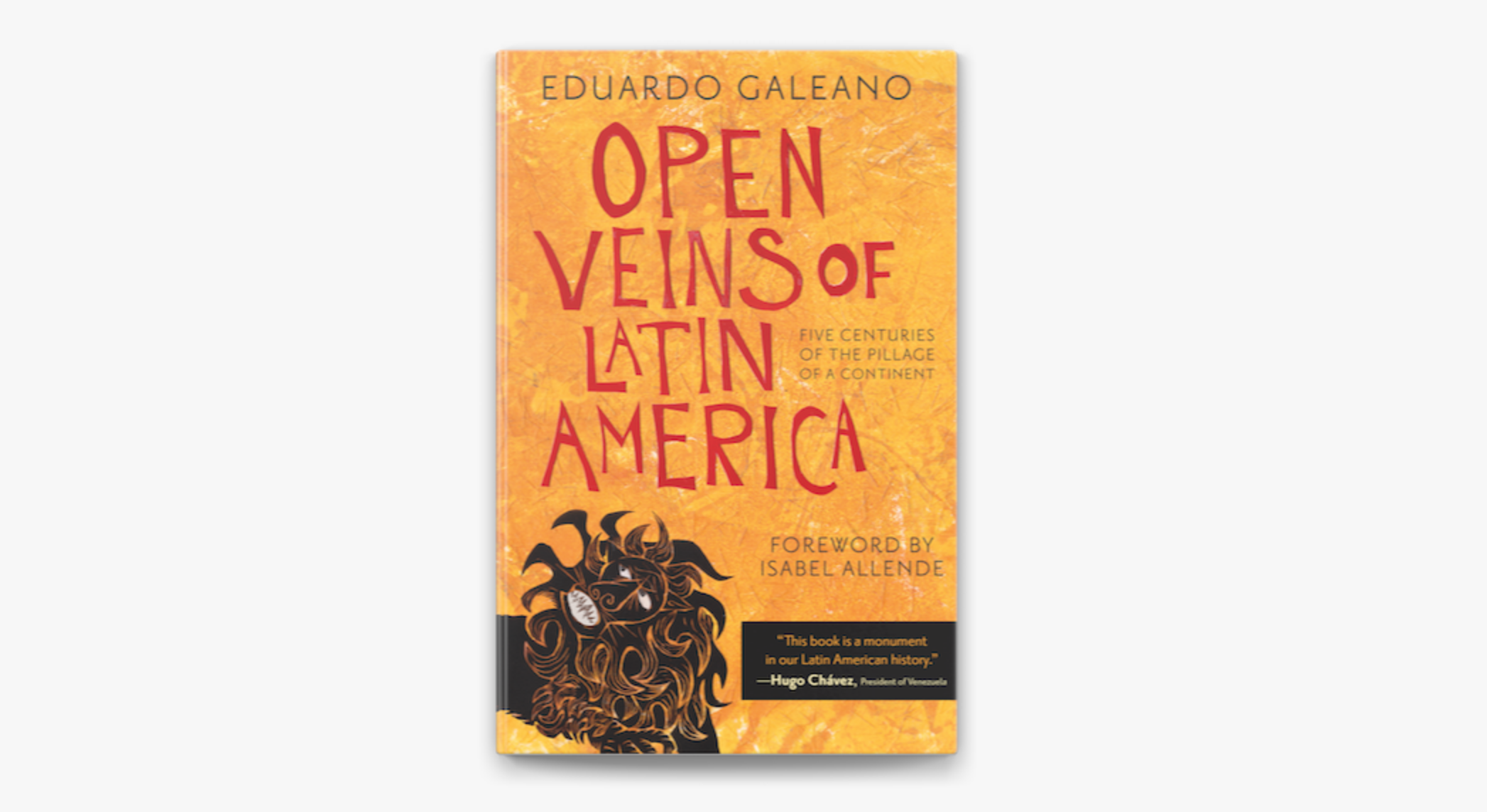In Open Veins of Latin America: Five Centuries of the Pillage of a Continent, Uruguayan best-selling author Eduardo Galeano dissects the historic exploitation of Latin America. This book was brought to my attention through friends who sought to connect with their Latin roots. Being a Latinx woman living in the United States, I too felt disconnected from my heritage, and reading Open Veins of Latin America helped me fathom my ancestors’ plight. In about 300 pages, Galeano encompasses one of the most tragic genocides in the entirety of world history. This book, commonly regarded as patriotic in Latinx nations, carries the sorrows of the conquered. Galeanos radical ideas perfectly explained how 20th century Latin Americas unremitting attempts at regime change were caused by a wave of Latinx youth seeking to reverse poverty and other issues their countries faced.
The publication covers Latin Americas history spanning from the arrival of Columbus to the Americas through the late-20th century when the book was published. Between a vivid retelling of history through several excerpts, anecdotes and historical facts, this composition speaks to a readers empathy and abstract thought. It opens by attributing Columbus arrival in the New World to a desire for precious metals, and furthermore, for religious expansion. These efforts to meet these aims resulted in the extermination of millions of Native American people due to disease and ruthless methods of gold mining. This historical era became a precedent for the continuous disregard for Latinx lives by European, and later, by American empires as further developed in the book.
The modern world is a direct result of the past. Galeano explores modern neo-colonialism, an indirect form of control over a nation usually done by developed countries for their own national gains. In Latin America, this form of control kept poor nations from cutting ties with global corporations, which they were financially reliant upon. According to Galeano, countless attempts to escape the system of economic oppression put in place by global superpowers has resulted in the demonization of Latinx nations merely looking out for their future. These nations and their alternative concepts for self-improvement are ridiculed by advanced countries who believe their methods of success should be the standard. Most Latin American nations are underdeveloped, because of interference from nations believing their method of economic and political expansion to be the best. This resulted in the lack of unity in Latin America, where nations would choose to side with the oligarchs to avoid negative repercussions even at the expense of the people.
A vivid example of this was the War of the Triple Alliance, fought in the 1860s by the Triple Alliance, Argentina, Uruguay, and the Empire of Brazil against Paraguay. The genocide that ensued targeted the only nation in Latin America that had developed without foreign intervention, Paraguay. The country was left in shambles. Although not directly caused by the British, the Bank of London and other British enterprises financed the war, helping to continue the pattern of profit for everyone but the subjugated Latin nations.
Industrial changes from silver mining in Mexico to the exploited Venezuelen petroleum industry of the mid-1900s share the same disregard for Latinx work that results in consumers benefiting more than workers themselves. Galeano perfectly paints a picture of Latin American as a tool for wealthier countries looking for cheap labor. His book explores the history of well-known Latin nations like Mexico and Brazil struggling to keep up with industrial changes, as well as those of smaller Latin nations that many might not even be aware exist.
The modern-day sections in the book make it very clear that Latin America is destined for poverty and to live in the shadows of first world countries if nothing changes. Latin America’s torment, became the ghostwriter of all sorts of historical revolutions, including the industrialization of the modern world. The victories from industrial movements were given to Europeans and Americans, specifically oligarchs with care for profit more than actual societal advancement, to the detriment of Latin America. From the realization that Latin America has been taken advantage of for centuries stems the hope that one day it will be able to liberate itself from the negative effects of colonialism.
The question Galeanos book poses, Is it possible for Latin America to rise above this designation? This question, brought up by the same countries that tore it down, can be looked at from a new perspective after reading this book. The multiple rises and falls of global empires incorporated into the book, as well as the overall feeling of underdevelopment in Latinx countries themselves leave it up to the reader to answer this question, or to rise to the occasion him or herself. For readers attempting to decolonize their world history perspective, this piece written by a Latinx author is a perfect opportunity to do so.
 Alondra Martinez, Alumni at UCTech
Alondra Martinez, Alumni at UCTech 
 Fast Fashion & Better Alternatives
Fast Fashion & Better Alternatives 